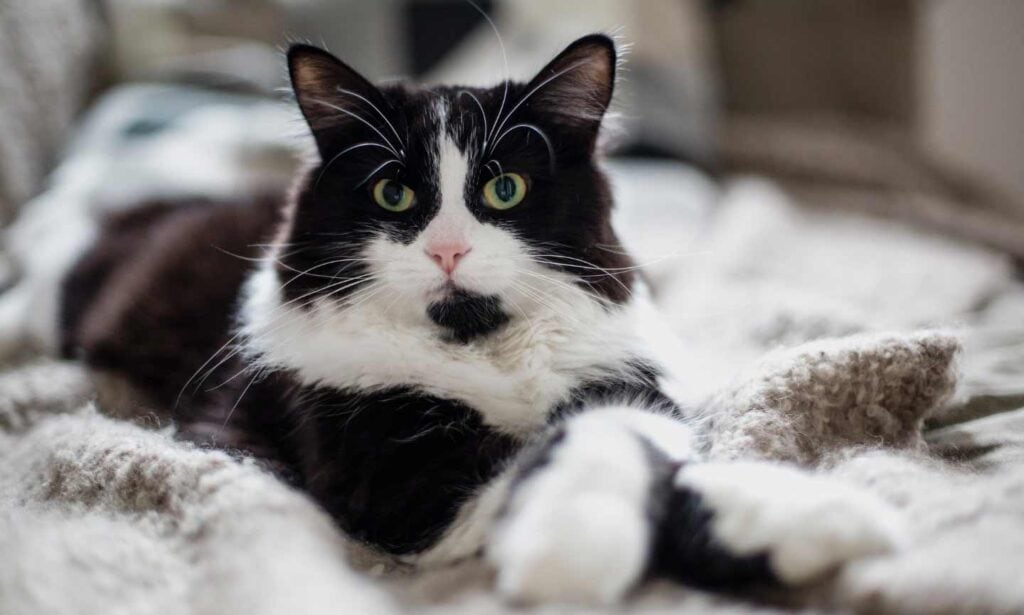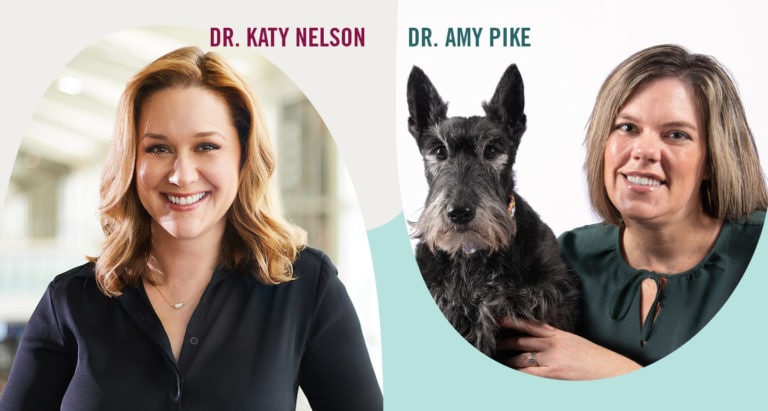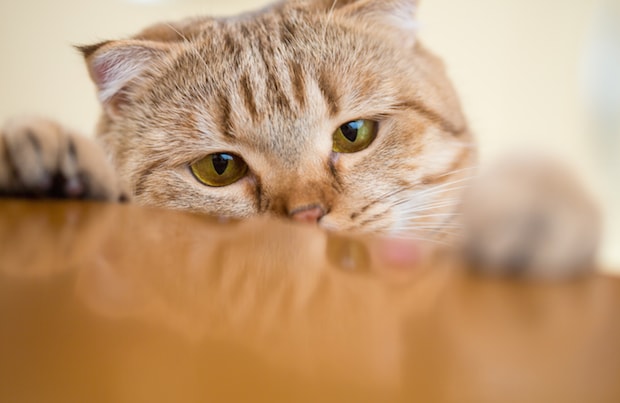From picky eating to post-litter box zoomies, our kitties have all sorts of silly quirks that leave us guessing. Drooling is another cat behavior that some felines experience, and the cause can range from minor concerns to health conditions that require more urgency.
“There are several reasons your cat may be drooling,” says Terrence Ferguson, DVM, a veterinarian based in Bonaire, Georgia. “It may be something as simple as your cat not liking the taste of their prescribed medication to more serious health concerns.” Call your vet if persistent, excessive drooling does not resolve after two to three hours.
Trying to figure out why your cat’s drooling and if it’s time for a vet visit? Review these causes of cat drool so you can make an informed decision.
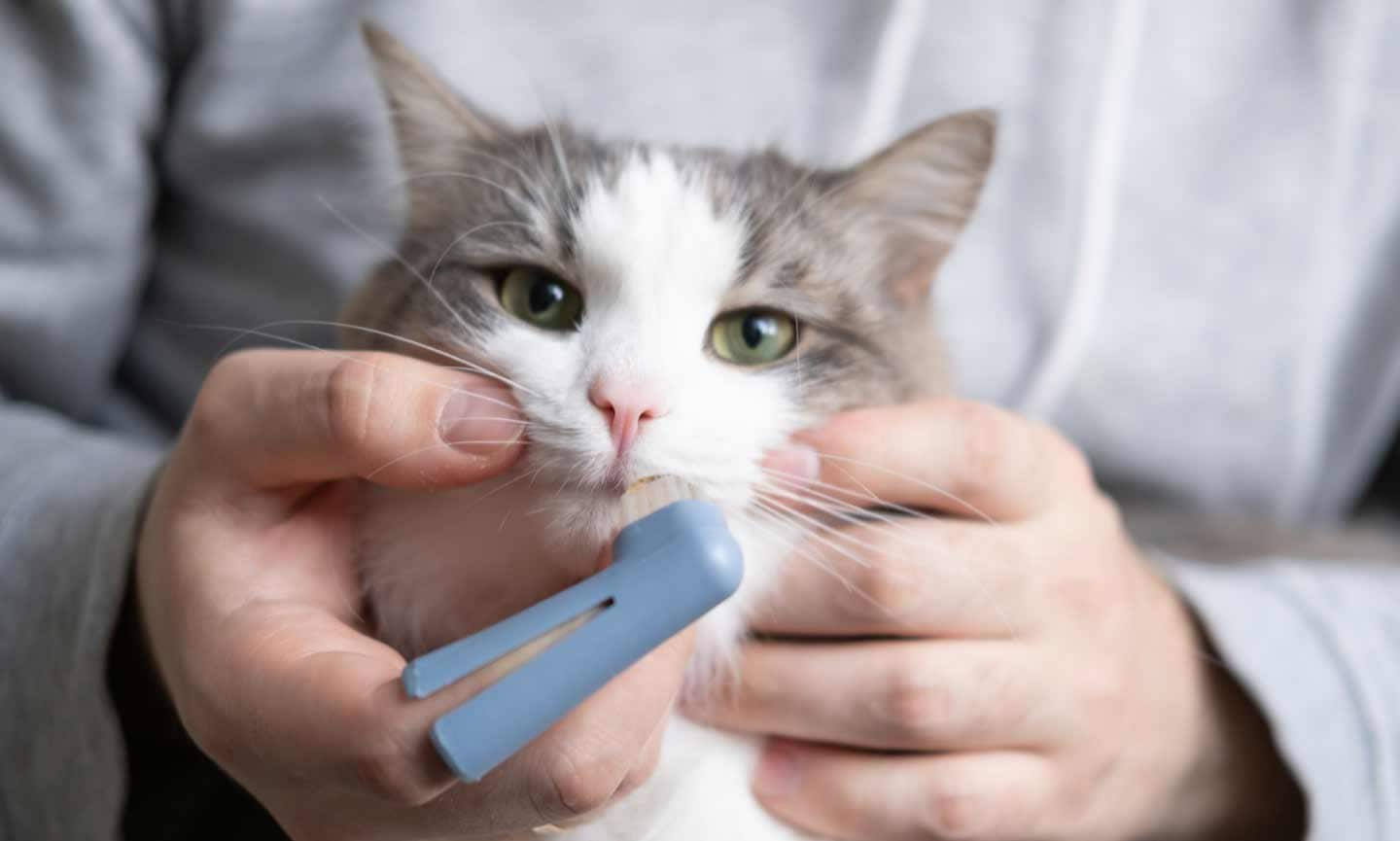
1Dental Disease
Just like humans and dogs, cats are susceptible to oral disease. They can experience kitty cavities, plaque/tartar buildup and gingivitis (gum disease). If dental issues are causing cat drool, “you may notice a discoloration and rough areas on your cat’s teeth that would normally be white and smooth,” notes Ferguson.
Bad breath; pawing at the mouth or face; and reduced appetite are other symptoms. You should brush your cat’s teeth daily (it’s not as tricky as it sounds). Your vet may also recommend a professional cleaning or tooth extractions.
2Upper Respiratory Infection
Cats can get upper respiratory infections (common colds), which can lead to sneezing, sniffling, coughing and drooling. They’re most apt to catch a cold when spending time around other sick kitties, which can happen if they visit the vet, an emergency hospital or are otherwise socializing.
Call your veterinarian for a proper diagnosis and appropriate treatment. Make sure your pet maintains proper nutrition and hydration, and try to keep them as comfortable as possible until the symptoms pass.
3Chewing or Ingesting Foreign Objects
Cats are known for scratching, but they also have a tendency to chew—especially while playing. Ingestion of a foreign body—such as a string, hair tie, electrical cords or piece of a cat toy—can cause them to start drooling, says Talisa Valencia, a veterinary assisting instructor at Carrington College in Mesa, Arizona.
These foreign objects can be irritating to your cat’s mouth or cause discomfort, which results in drooling. If the object is lodged in your cat’s esophagus, this can also cause excessive salivation and should be treated immediately.
4Medications
Similarly, certain medications may make your cat drool, especially if they have a bitter taste. “A cat's defense mechanism when tasting something bitter is to purge it from their system by foaming at the mouth or sometimes even vomiting,” Ferguson says.
Ask your veterinarian if they have a more palatable medication your cat may like. You can also try pill pockets like Feline Greenies, or dipping the medication in a tasty broth like Fancy Feast Classic Broths to mask the flavor. Some medications can be compounded into a formula that absorbs through the skin, so your cat won’t have to taste it at all.
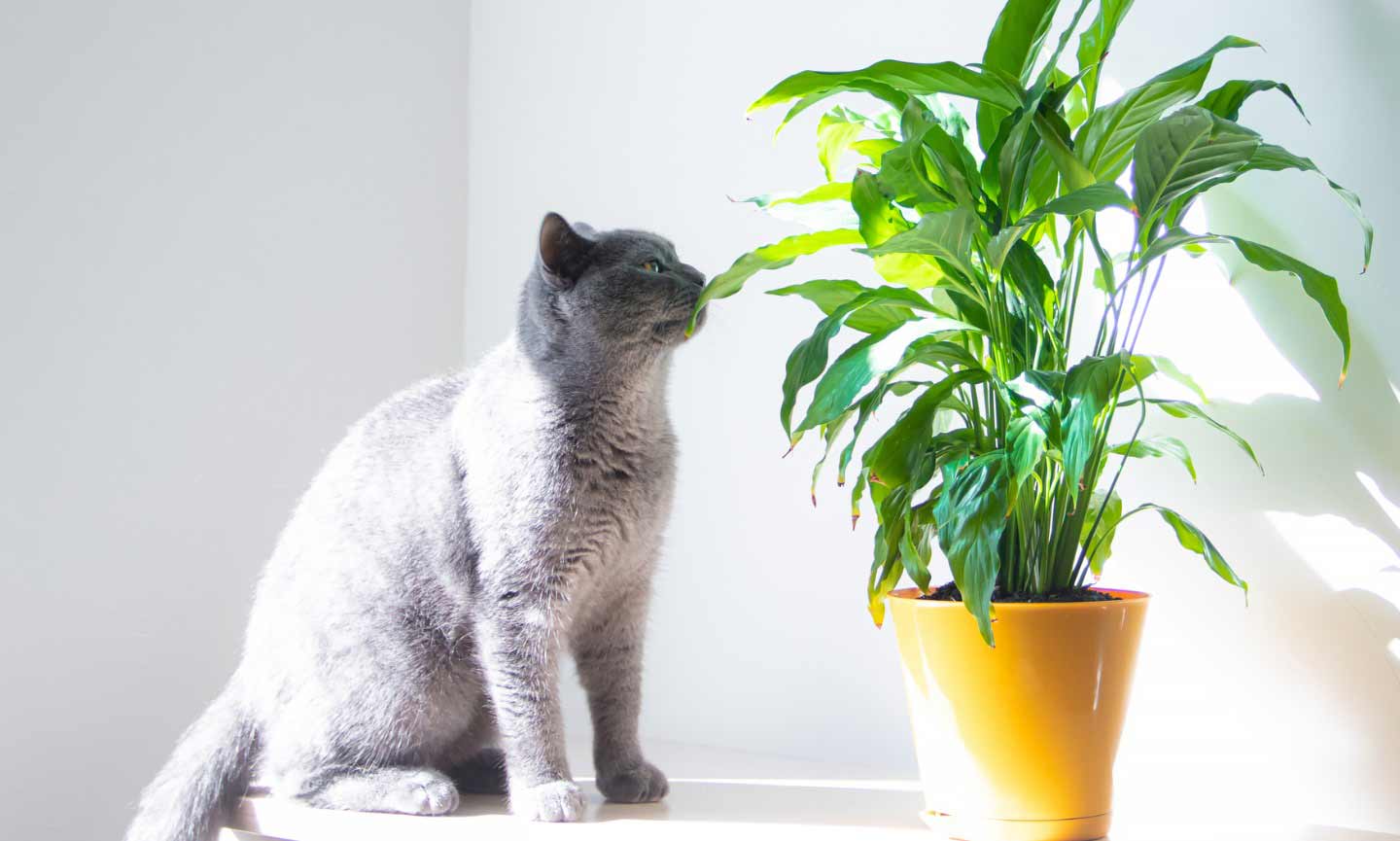
5Consuming Toxic Substances
When cats ingest toxic or irritating substances, it initiates that same purging response that leads to drooling. If you suspect your cat has chewed on or eaten something they shouldn’t have—like poisonous houseplants or food—seek veterinary care right away for immediate treatment.
6Hairballs
If your cat is about to have a hairball or just had one, there’s a solid chance it’s accompanied by saliva. Cats produce saliva as a sort of lubricant that helps coax the hairball out of their body. The act can also trigger saliva production in their mouth, since it's irritating.
Hairballs, while common in cats, should be addressed if they are frequent. Hacking up a hairball causes quite a bit of distress on your poor feline. Talk to your vet about ways you can minimize your cat’s hairballs. Options include brushing more regularly and trying new foods or treats.
7Nausea
When cats feel nauseous or ill, Ferguson says, this can result in increased drooling. Cats can feel nauseous for all sorts of reasons, including eating something that didn’t agree with their tummy; taking car rides; and underlying conditions. If the drooling persists more than two hours, head to the vet.
8Mouth or Throat Cancer
Though it is less common, if cats develop cancer in the mouth or back of the throat, this can cause tumors in the oral cavity or deformities on the tongue. “These deformities may lead to difficulty swallowing or closing the mouth, which can lead to drooling,” Ferguson says. If you suspect your cat’s drooling is caused by cancer, schedule a visit with your vet to check for signs of cancer and to begin treatment promptly.
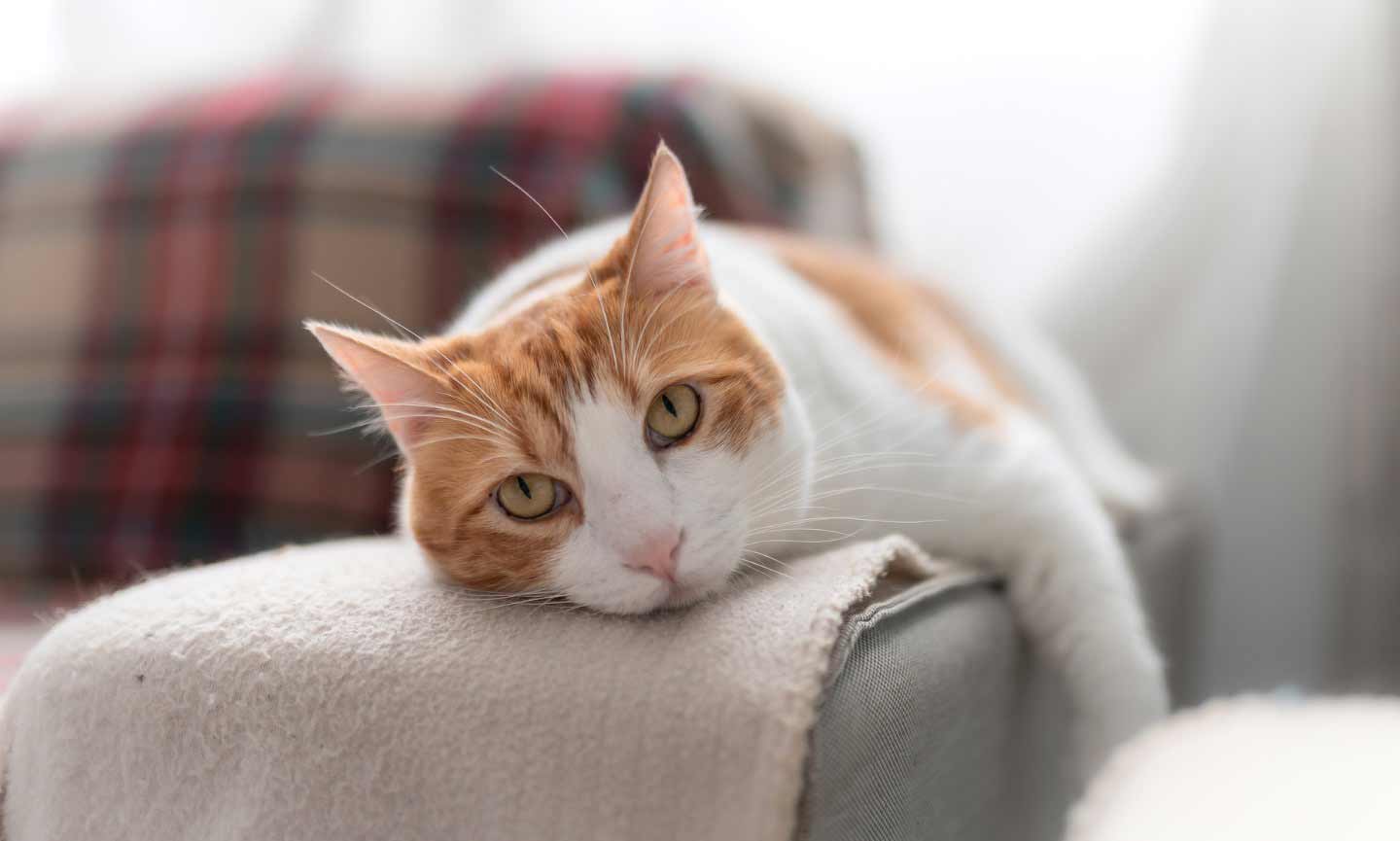
9Neurological Disease or Complications
Neurological issues—such as feline epilepsy or brain tumors—are another less common reason why cats drool, but it’s still worth considering. Cats with Feline Immunodeficiency Virus (FIV) or Feline Leukemia Virus (FeLV) may also experience neurological complications.
Signs of neurological issues include excessive drooling; seizures; poor motor control; changes in behavior; and problems with coordination or balance. See your vet immediately if your cat exhibits any of these symptoms.
10Kidney Disease
It may seem unrelated, but kidney disease can cause excessive cat drooling. As the kidneys’ ability to function properly declines, waste buildup occurs in your cat’s bloodstream. This results in nausea, food aversions and generally feeling not so great. Kidney disease is also associated with an uptick in oral or dental problems, including mouth ulcers, bad breath and infections.
Your veterinarian can diagnose kidney disease based on testing and observation. They will prescribe medications and treatments to help manage and alleviate your cat’s discomfort.
11Anxiety or Fear
Cat drooling can also occur when your feline is feeling frazzled, stressed, anxious or fearful. Other signs your cat is agitated include hiding; hissing or howling; an arched back; a stiff body; and a bushy tail. They may also be more aggressive when they’re in this state, and could swing at you with their paws or try to bite.
It’s important to help mitigate their anxiety when this occurs. Give them the space they need; try to remove triggers; and allow them time to calm down. If this is a persistent issue, speak with your veterinarian about possible causes and solutions. Find more ways to soothe your cat’s stress.
12Feeling Relaxed or Happy
While most of the above causes of cat drooling require some lifestyle adjustments or immediate veterinary care, there’s one cause that’s not worrisome: a happy cat. Some cats are simply prolific droolers who start salivating when they’re in a content, relaxed or otherwise happy state of mind.
If you notice some slobber while your kitty’s kneading; purring; being petted; eating yummy food or treats; or resting in a relaxed position, there’s no need to fret. Lean into the happy vibes and give them some extra love.
Learn more about your cat's behavior
Share:
